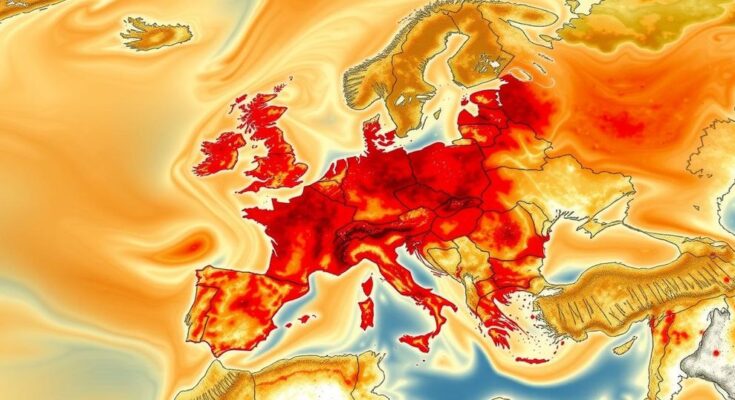European Union scientists have confirmed that 2024 will be the hottest year globally on record, surpassing the critical 1.5°C increase beyond pre-industrial averages. This trend is linked to widespread extreme weather events driven by climate change, with carbon emissions reaching record highs. Looking ahead, potential short-term relief from conditions like La Nina will not negate the ongoing effects or dangers related to climate change.
European Union scientists have declared that 2024 will be the warmest year on record globally, with expectations of unusually high temperatures extending at least into early 2025. Findings from the Copernicus Climate Change Service (C3S) indicate that this year is set to exceed an increase of 1.5 degrees Celsius above pre-industrial levels, marking a significant milestone since records began. This announcement follows recent UN climate negotiations that resulted in a $300 billion agreement aimed at addressing climate change, which has drawn criticism from poorer nations that deem it inadequate for overcoming the escalating challenges posed by climate-induced disasters.
The year has witnessed an array of extreme weather events, including severe droughts in regions such as Italy and South America, lethal floods in Nepal, Sudan, and across Europe, as well as heatwaves in countries like Mexico and Saudi Arabia, which have tragically led to numerous fatalities. Furthermore, catastrophic cyclones have occurred in the United States and the Philippines, with scientific analyses attributing the correlation of these disasters with human-induced climate change.
Notably, November 2024 became the second warmest November recorded, following a similarly high temperature in November 2023. Julien Nicolas, a researcher from Copernicus, emphasized, “We’re still in near-record-high territory for global temperatures, and that’s likely to stay at least for the next few months,” indicating that the trend of elevated temperatures is expected to continue. Despite governmental pledges toward achieving net-zero carbon emissions, global CO2 emissions are projected to reach record levels this year, further exacerbating the issue.
Scientists are currently observing the potential emergence of the La Nina weather pattern in 2025, which could bring a brief cooling effect. However, Friederike Otto, a senior lecturer at Imperial College London, cautioned that even if La Nina occurs, it will not revert temperatures to what is considered ‘normal.’ Otto stated, “We will still experience high temperatures, resulting in dangerous heatwaves, droughts, wildfires and tropical cyclones.”
The article discusses alarming predictions made by European Union scientists regarding the state of global temperatures in light of human-induced climate change. The findings come on the heels of international climate talks aimed at addressing the causes and consequences of climate change. With global temperatures rising to unprecedented levels largely due to carbon emissions from fossil fuels, the implications of such changes are dire, as evidenced by increasing occurrences of extreme weather phenomena across the globe. The historical context provided by the records kept by C3S reveals the long-term trends that highlight the urgency for effective climate action.
In summary, the projections for 2024 being the hottest year on record underscore the severe impact of climate change and the urgent need for effective mitigation strategies. The correlation between human activity, rising carbon emissions, and extreme weather events presents a critical scenario that demands immediate attention from global leaders. Without significant reductions in emissions and comprehensive climate action, the world will continue facing the harsh realities of climate change, including higher temperatures and severe environmental disasters.
Original Source: sightmagazine.com.au




